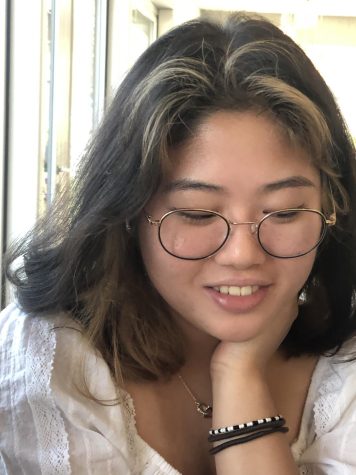“My function in life is not to be a politician in Parliament: it is to get something done.” – Bernadette Devlin
Saoirse: The Student Parliament – something many students have an opinion on. After the recent election of our new Presidents, I’ve heard a lot of mixed opinions on the Student Parliament. What I heard the most by far was, “Why do we even vote? The Student Parliament barely even does anything!” I wanted to get to the bottom of why students can’t or don’t see the true work of the Student Parliament. Is it too challenging to execute certain ideas or are teachers limiting them? I decided to interview Divya, a Student Parliament member since middle school and whose presidential term just ended, to get insight into what is really going on.
Saoirse: What was the most challenging aspect of your role?
Divya: You don’t have nearly as much power as you would assume a president would have, at the end of the day you’re only a student and a student can only do so much when it comes to bringing an idea to leadership. Whenever you have an idea that’s great and people encourage that but after you have to get your team to agree, you have to spend time writing a proposal and doing lots of research because that’s what the teachers expect of you. You then have to propose it to Leadership and the marketing team in which case the entire thing may get shut off. This means a lot of your progress disappears quite fast which can be really disheartening. This is also because it’s not just the work that I do but the work that an ambassador in Year 7 or Year 8 has done and they really believe that they’re having such a big influence on the school when in fact, they get cut off because at the end of the day they’re just a student. It sometimes feels like your voice isn’t really as big as it is in the Student Parliament meetings when you’re coming up with ideas because the power that we have definitely is limited.
I also feel that over the years the Student Parliament has become less hopeful and idealistic in terms of aiming to achieve big ideas. This is because over time students have realised that there is less and less they can do. As a result, now even in the meetings other members may shut down ideas because “leadership probably won’t say yes to this, so let’s forget that.” A lot of our ideas start but don’t really see their end because we have lost a bit of that motivation.
Saoirse: Do you think the Student Parliament is effective in making change?
Divya: I would love to say yes. I think it’s a great group of people! Everyone certainly has really great ideas but I think we are given very little space in which to work in the school. I feel like we are funnelled by the teachers because there are only four or five areas around the school where we are allowed to try and make change. These areas are always the same, it’s always the cafeteria and the playground space. We have very little decision making on curriculum or anything like that.
I do think the Student Parliament has made some significant changes especially in the last year for example, Tootoot which was our biggest project that has seemed to work. We’ve had over 80 student responses about different concerns within the school. So I think this shows that the Student Parliament has the capacity to make change, it’s just the scope with which we are allowed to make changes is less than you would think.
It would definitely be better if we were given more freedom. Teachers have all kinds of department meetings, curriculum meetings, meetings on diversity and things like that and the Student Parliament needs to be at those. We need to know a lot more about what’s happening because we don’t at the moment. There’s a lot of smart and wonderful people coming to a room and sitting there every week and sort of wasting their time because they don’t know what is going on in the school and aren’t allowed in those spaces to voice their opinions and come up with the ideas I know they have.
Saoirse: Do you think teachers should be allowed to vote for student presidents?
Divya: I think it would be interesting to have a separate teacher vote but ultimately I think it’s a “student” parliament, we do work for the students body. Teachers are already the ones in the positions of power and they decide on what we do in class and the way the rules work which they enforce. While it would be interesting to have their opinion, I think that should be kept separate from the students and student voice needs to be prioritised.
Saoirse: What changes would you make to make the Student Parliament more effective?
Divya: Definitely Student Parliament members need to be around every area of the school, they need to be sitting in on curriculum meetings, board meetings but I also think Student Parliament members should be invited to other groups around the school. We need to know what the Eco Society has been doing and the Pride Alliance for example. If you have a group of students with the skill of leadership, they should have the ability to bring all those groups together so that we all work together. We need to have a bigger role in a lot of the things around the school because if not I think that’s a lot of wasted potential.
I think the Student Parliament also needs to be more transparent with the student body which is a mistake we made last year. We didn’t show up to as many assemblies, but this can be hard. I want to see what the new presidents do this year to be more open with the students and encourage them to participate more as well.
But if I was to change one thing it would just be to increase the Student Parliament involvement with more things around the school and not just keep it in the MPR every Wednesday. This would also allow students to see our work and involvement.
Saoirse: In reality, to what extent is the student voice listened to and part of the final decision for making change for the Student Parliame
nt?
Divya: I think the student voice is at the heart of the Student Parliament’s mission. What the Presidents and ambassadors set out to do is with the best intentions of improving student life at school and making ISL a safe and enjoyable space for everyone.
There is some work to do on executing that mission. Like I mentioned earlier, the Student Parliament has a difficult job to do, and that is balancing the wants and needs of students with the power they hold to effect change within the school.
If any student was to say, “the Student Parliament does not listen to students”, that would be completely wrong. They are always listening and learning from the student body. What the Student Parliament needs to do is improve transparency and have more of a presence within the school. Instead of tackling tokenistic issues, they need to build on work from last year on Tootoot, recess spaces, or green spaces within the school.
I’d also like to see the teachers be more welcoming towards the Student Parliament. I feel like the ideas ambassadors could bring to changing curricula or school policies are so valuable.
And I really wish Liv and Suvarn the best of luck in this! I have a feeling they’re going to bring about that change.
Saoirse: Divya’s interview has certainly broadened my understanding on why the student body often doesn’t see the action their parliament is taking. It’s clear that the student body needs to see more of its involvement in various aspects of the school, for it to truly claim to be the voice of the students and ensure that their voices are being heard. A president’s first job is to listen to their electorate. The electorate has clearly spoken. Will they take the feedback? I echo Dviya’s sentiments and wish the new presidents the best of luck.



